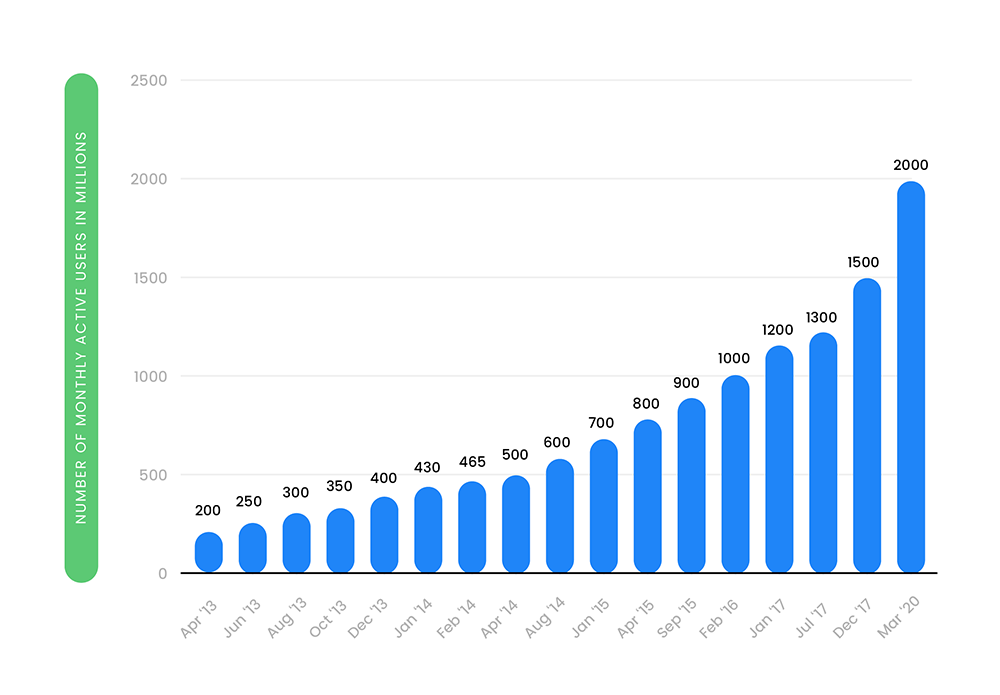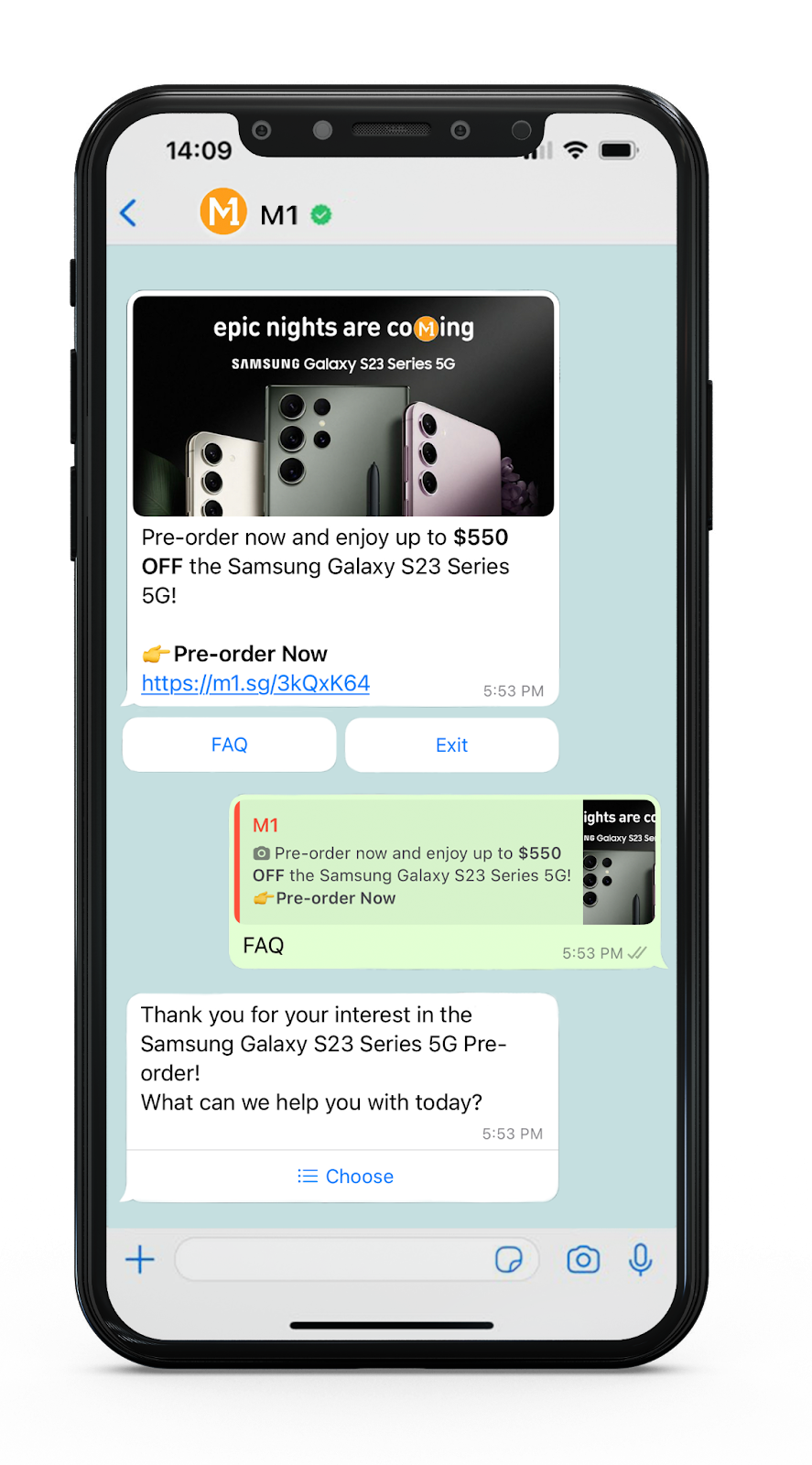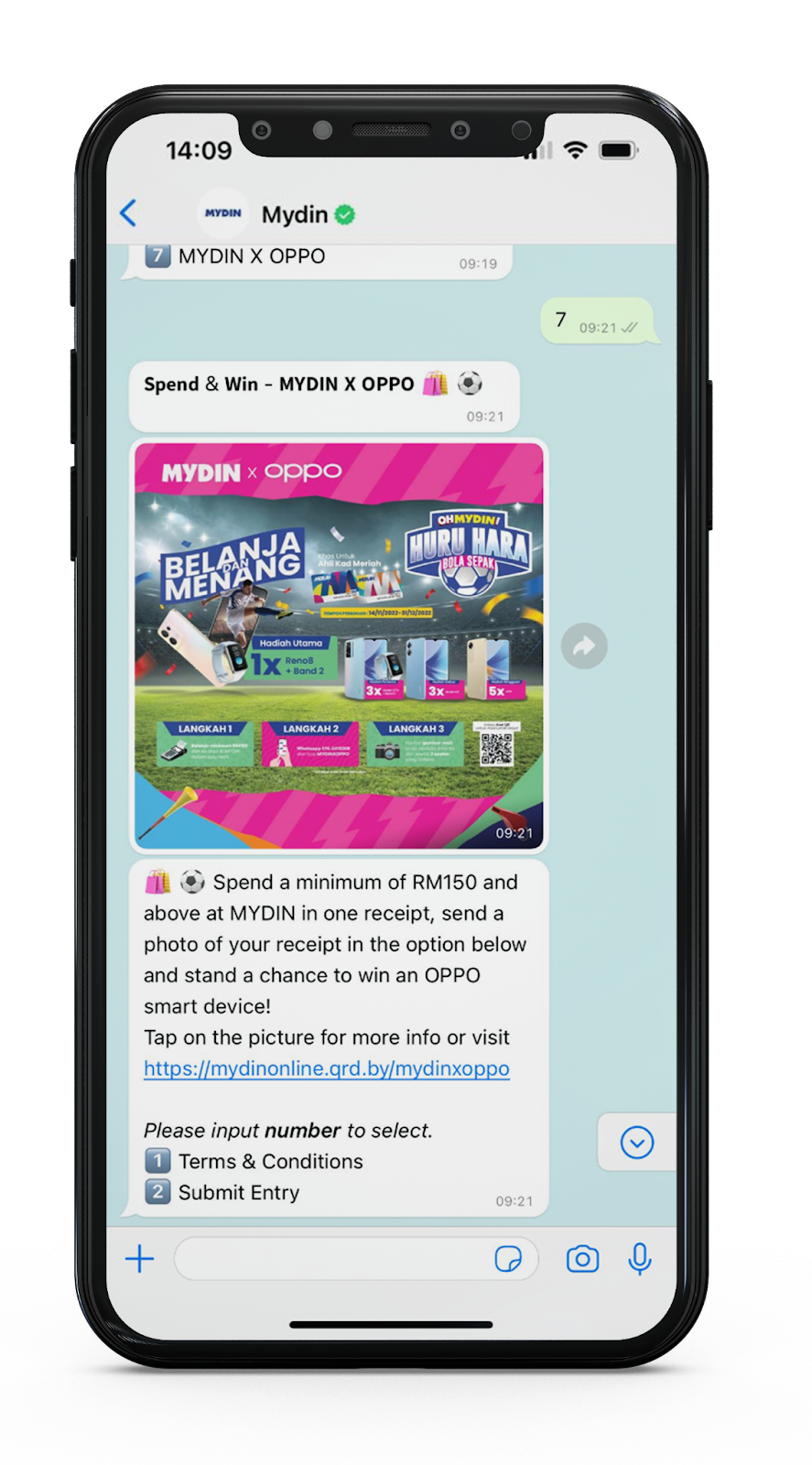



Unleashing WhatsApp’s marketing potential
share on
This post is sponsored by AiChat.
With the rise of WhatsApp as the go-to messaging platform for millions of consumers in the region, businesses are capitalising on the power of WhatsApp marketing to reach and engage their target audience in a brand new way.
One of the consistently emerging trends over the past few years has been the dramatic shift towards mobile, and this trend is expected to ramp up in 2023, and beyond. In 2022, there were 326.3 million smartphone users in Southeast Asia, with Indonesia and Vietnam leading the way. These users make up 88% of the region’s internet users.
In a mobile-first world, WhatsApp is one of the world’s most-used apps. With just over 7.5 billion people, the app is used by more than one-fourth of the world’s population.
 Image: WhatsApp and its increasing usage worldwide.
Image: WhatsApp and its increasing usage worldwide.
Owing to the emergence of WhatsApp, and its increasing usage worldwide, it has become the “IT” platform for reaching out to new markets, engaging existing customers, lead generation, and conversion.
Not utilising WhatsApp for marketing means missing out on a highly effective communication channel. With a remarkable open rate of 98%, WhatsApp outperforms traditional email marketing, which, according to a recent study by Mailchimp, has an open rate of just 21.33%.
This stark difference means that out of 100 messages sent only 21 emails are being opened, while WhatsApp messages have an incredible open rate of 98 out of 100.
In this article, we will explore how WhatsApp works as a marketing channel and examine the role of AI in empowering businesses to deliver personalised customer experiences at scale.
How businesses can leverage WhatsApp marketing
WhatsApp marketing – a method of chat marketing which is becoming increasingly popular – simply refers to advertising a brand on WhatsApp. It involves using the WhatsApp Business Platform to connect with, engage, and target both current customers and new users.
According to Statista, there were more than 1.2 billion users of WhatsApp Business worldwide in 2021. Furthermore, there were approximately 779 million regular WhatsApp users and business accounts in the Asia Pacific area in 2021. This clearly indicates the relevance of WhatsApp for business globally, especially in Asia Pacific.
In the world of marketing, building relationships with customers and boosting brand engagement are critical for success. One effective way to achieve this is by providing interactive content that sets a brand apart from its competitors.
The WhatsApp Business Platform offers message templates with interactive elements such as buttons that can be added to communications. These messages make it easier for businesses to promote their brand and send a wide range of information to customers.
Businesses can send these message templates via the WhatsApp Broadcast, which allows businesses to send bulk messages to a list of recipients in a private chat, making messages more personal and secure.
WhatsApp Broadcast using the WhatsApp Business Platform can be used to share promotions, product insights, and more with an audience of up to 100,000 unique users, even those who haven’t added you to their contacts list.
The WhatsApp Business Platform’s broadcast feature offers several benefits, including in-depth analytics for each broadcast to fine-tune marketing campaigns and re-targeting campaigns to specific groups of users, making it the ideal choice for businesses looking to maximise their marketing campaigns and customer interactions on WhatsApp. 
Image: AiChat’s client M1 recently sent a WhatsApp broadcast promoting the launch of the Samsung Galaxy S23 Series 5G.
By including a call to action to send a WhatsApp message in click-to-WhatsApp advertising, brands can enable their audience to connect with them directly from an advertisement they saw on meta platforms such as Facebook or Instagram, starting a conversation with high-intent users. This is particularly relevant in countries such as Singapore and Malaysia where WhatsApp is the preferred messaging app for almost everyone.
Additionally, data privacy and security are critical concerns for consumers and stakeholders. WhatsApp encrypts messages and calls end-to-end, which helps build trust and confidence between brands and customers.
With the recent implementation of the personal data protection act in countries such as Indonesia, Thailand, and Singapore, the WhatsApp encryption is a crucial feature that businesses can rely on to protect their customers’ data.
Overall, by leveraging the WhatsApp Business Platform’s unique features, businesses can engage customers with rich messaging experiences, and drive better marketing outcomes while also ensuring data privacy and security for customers.
The role of the AI chatbot
As brands navigate through this digital-first 4.0 era, keeping up with ever-evolving consumer demands is becoming increasingly difficult. According to a recent study by McKinsey, customers expect a prompt reaction to their questions and grievances on social media.
Users expect brands to respond within the first hour in 40% of cases, and within the first 24 hours in 79% of cases. Another study found that 91% of customers immediately leave after a poor customer experience, and 47% choose a different brand.
It appears humanly impossible to catch up with ever-evolving consumer trends and demands, but this is exactly where chatbot-enabled WhatsApp automation can help. Gartner predicts that by 2027, chatbots will become the primary customer service channel for roughly a quarter of organisations.
“When designed correctly, chatbots can improve the customer experience and drive positive customer emotion at a lower cost than live interactions,” said Uma Challa, senior director analyst at Gartner.
WhatsApp automation is the process of automating communications with clients using the WhatsApp Business Platform. Automated messages on WhatsApp are pre-written responses to communications from new or existing users. Automation in WhatsApp is a low-cost marketing strategy that enables businesses to interact with clients 24/7 and provide real-time responses to their questions.
The use of automation in WhatsApp marketing has a variety of advantages. It enables companies to succeed in the fierce rivalries of today, where immediate replies are expected because automation drastically cuts down on reaction times. Automated chatbots also assist organisations to increase conversion rates by leading customers down the sales funnel.
Automation enables brands to increase the effectiveness of WhatsApp marketing through automated welcome messages, reminders that go out on time, purchase updates, and frequently asked questions. Additionally, it frees up the team’s time so it can concentrate on finishing up more difficult and significant duties.
WhatsApp advertising and campaigns powered by chatbots are also quite successful and well-liked. With AI handling everything, these automated contests are simple to manage and can be of any kind, from product launches to opt-ins via landing pages and one-chat competitions.
One great example of WhatsApp marketing is Mydin Malaysia’s chat experience powered by AiChat, which allows consumers to get quick access to information on Mydin Express, its contactless grocery drive-through service, shop products, subscribe to store flyers, promotions, and more. The chat platform is available in either English or Bahasa Melayu.
For the recent Mydin x OPPO World Cup Spend & Win 2022 campaign where shoppers could enter to win an OPPO smart device with a minimum spend of RM150 in a single receipt, the brand achieved:
- 3X WhatsApp chatbot usage – compared to pre-launch.
- 39% uplift for WhatsApp chatbot usage – Q3 2022/Q4 2022.
- 73% of customers interacting with the WhatsApp chatbot versus 27% of customers interacting with the Facebook messenger chatbot.

Image: Mydin Malaysia’s chat experience powered by AiChat.
Looking forward
As Southeast Asia experiences a dramatic shift towards mobile, WhatsApp’s relevance as a marketing tool increases. The app is the world’s most-used app and has an open rate of 98%, outperforming traditional email marketing.
With the increase in customers’ capacity to interact with brands around the clock, pull marketing has replaced push marketing techniques such as email, paid channels, SMS, and social media, and WhatsApp marketing is a significant step in this direction.
With its simple interface, high reach and increasing usage, WhatsApp for business is clearly the future of marketing, and this will be an upward trend in the years to come.
Want more in-depth analysis, additional data, and exclusive insights on WhatsApp marketing? Sign up to download the full version of the “Unleashing the potential of WhatsApp marketing for business growth and scalability” white paper here.
share on
Free newsletter
Get the daily lowdown on Asia's top marketing stories.
We break down the big and messy topics of the day so you're updated on the most important developments in Asia's marketing development – for free.
subscribe now open in new window
